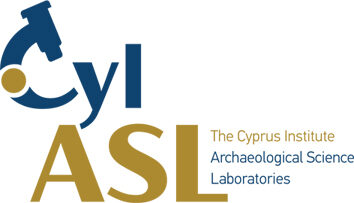Training
The Cyprus Institute offers a range of core training opportunities in Archaeological Sciences, both as formal degree programmes and through exchange, internship and placement programmes. Beyond these, additional opportunities are offered through a number of currently funded projects.
NEW: Funded PhD project in Archaeometallurgy
Reconstructing the chaîne opératoire of Early Medieval copper metallurgy in Southern Morocco
Application deadline: 15 September 2021 – Start Date: 7 February 2022
The project is based on the analysis of a range of metallurgical remains, including crucibles, slag and some metal, both raw and finished objects. Most of the initial research will be conducted at STARC using a suite of already-collected material, but the successful applicant is expected to travel to southern Morocco, probably in early 2023, for a month-long field season as part of a team led by colleagues from the l’Institut National des Sciences de l’Archéologie et du Patrimoine (INSAP), Morocco, and the British Museum, UK. The selected candidate for this project is expected to conduct sample selection and documentation in Morocco, sample preparation and analytical work using optical and electron microscopy at STARC, and cooperate with external laboratories for other analytical work, such as trace element and stable heavy isotope analyses. A background in mineralogy and/or process technology in metallurgical systems will be highly advantageous.
For more details and how to apply see here.
Additional information on the CyI Graduate School degree programmes can be found following the links below:
CyI Graduate School Degree Programmes
PhD in Science and Technology in Archaeology and Cultural Heritage:
MSc in Digital Culture Heritage
Summer Internship
https://www.cyi.ac.cy/index.php/education/training-programs/summer-internship-programs.html
Training programmes through specific projects:
Promised: Promoting Archaeological Science in the Eastern Mediterranean
The Promised Summer School 2021 will take place from 26th to 31 July 2021, with the main theme Ancient Landscapes: Raw Materials and Natural Resources. To apply for a place and for any further details, please contact Yiannis Trimithiotis at promised@cyi.ac.cy.
‘Promised: Promoting Archaeological Science in the eastern Mediterranean’ is a H2020 Twinning project (Grant No 811068) aimed at establishing a strong partnership between the Science and Technology in Archaeology and Culture Research Center (STARC) of The Cyprus Institute and two of the international leaders in Archaeological Sciences, KU Leuven and the University of Cambridge.
For three years, training, research and dissemination actions will be used to upgrade the scientific performance of STARC in Archaeological Science, with an emphasis on Archaeological Materials Science and Bioarchaeology. In addition, ‘Promised’ will help develop the doctoral training programme at The Cyprus Institute, reversing the brain drain from the region and developing an internationally recognized doctoral school in Cyprus. These initiatives will transform STARC into a regional Centre of Excellence in Archaeological Science that will collaborate closely with national and regional authorities towards bringing the past of the region to light.
For more information: https://promisedtwinning.cyi.ac.cy/#
The MSCA-ITN PlaCe network
https://place-itn.cyi.ac.cy/training
The PlaCe network is a high-profile partnership dedicated to the interdisciplinary study of pre-modern ceramics and plasters. This Innovative Training Network aims at training Early-Stage Researchers to conduct state-of-the-art, science-based research on the technology, use, and provenance of the most abundant materials in archaeological sites. This is a €3.9 million research project fully funded by Europe’s Horizon2020, the EU Research and Innovation funding programme, as a Marie Skłodowska-Curie Action running from 2021 to 2025.
The 14 doctoral fellows have now been selected and will start their studies in September 2021. IN addition, the project supports 6 six-month short-term fellowships which are open to current doctoral students from outside the consortium; every academic year two such short-term fellowships will be opened, with application deadlines in June of each year.
